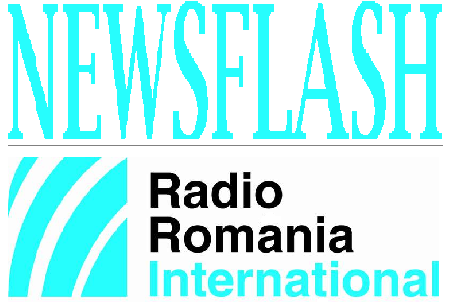March 26, 2014 UPDATE
Click here for a round-up of domestic and international news!

România Internațional, 26.03.2014, 12:07
The United States and Europe stand united with regard to the Ukrainian crisis, whereas Russia stands alone, US President Barack Obama said in Brussels on Wednesday. President Obama said, at the end of the EU-US Summit, whose focal points were the crisis in Ukraine and the future trans-Atlantic free-trade agreement, that the “world is safer and more just, when Europe and the US stand together.” Obama also said the conclusion of a free trade agreement between the US and the EU might result in an easier granting of licenses for liquefied natural gas exports to Europe, which is extremely important against the current geo-strategic background. Belgium is the second leg of a European tour taken by the US President, after the Hague, where he attended the Nuclear Security Summit. On that occasion, the European leaders, gathered in the Hague, reiterated their support for Ukraine’s Government.
The Russian troops stationed in the Moldovan breakaway region of Transdniester carried out manoeuvres on Tuesday. Several hundreds of Russian military carried out anti-terror drills and simulated a defence operation of their military base, the Interfax news agency quoted Oleg Koscetkov, a spokesman for Russia’s Western Military Command, as saying. NATOs Supreme Allied Commander Europe, Gen. Philip M. Breedlove on Sunday voiced concern over Transdniester’s becoming President Vladimir Putin’s next target, after Russia annexed the Ukrainian peninsula of Crimea.
Romania might benefit from a repositioning of the NATO forces, following the developments in the region, which makes it “more attractive” to espionage, so it should consolidate its counterintelligence component. The statement was made on Wednesday by Romania’s President, Traian Basescu on the occasion of the annual assessment of the activity of the Romanian Intelligence Service. Basescu also said Romania boasts a high-performing intelligence service, which has reached all its goals, such as the fight against corruption, the fight against organised crime, the anti-terror fight and counterintelligence. The head of the Romanian Intelligence Service, George Maior, said that last year, the institution he runs sent 9,000 notifications to the relevant authorities on acts of corruption in the administration, the judiciary and on tax evasion.
In Romania, Wednesday was the last day when political parties and independents could submit their candidacies to the Central Electoral Bureau for the European Parliamentary elections scheduled for May the 25th. Election results can be contested as of March the 28th. Romania will have 32 MEPs in the next European legislature. Opinion polls show the ruling alliance, made up of the Social Democratic Party, the Conservative Party and the National Union for the Progress of Romania is likely to win the euro-parliamentary elections, with about 40% of the Romanians’ votes, whereas their government partners, the Democratic Union of Ethnic Hungarians in Romania might get between 5 and 7%. The National Liberal Party, in opposition, might get between 15% and 17% of the votes, followed by the Liberal Democratic Party and the People’s Movement Party, with some 10% each.
The Board of the International Monetary Fund on Wednesday assessed the first two evaluation reports of the precautionary agreement signed with Romania last year. After their latest mission in Bucharest, this February, the IMF experts announced Romania met all technical criteria set by the Fund, except for decreasing the state-owned companies’ arrears. The IMF called on the Romanian authorities to downsize these companies’ workforce. The Romanian government has pledged to fully or partially pay the debts of railway and road companies owned by the state and to declare insolvent and even bankrupt several other heavily indebted companies.
The Humanitas Library in Bucharest’s Cismigiu Gardens on Wednesday organised a Japanese literary evening, devoted to Katherine Govier’s novel “The Printmaker’s Daughter.” Attending the event were art historians, literary critics and professors of Romanian-Japanese studies from the Romanian–American University in Bucharest.




























